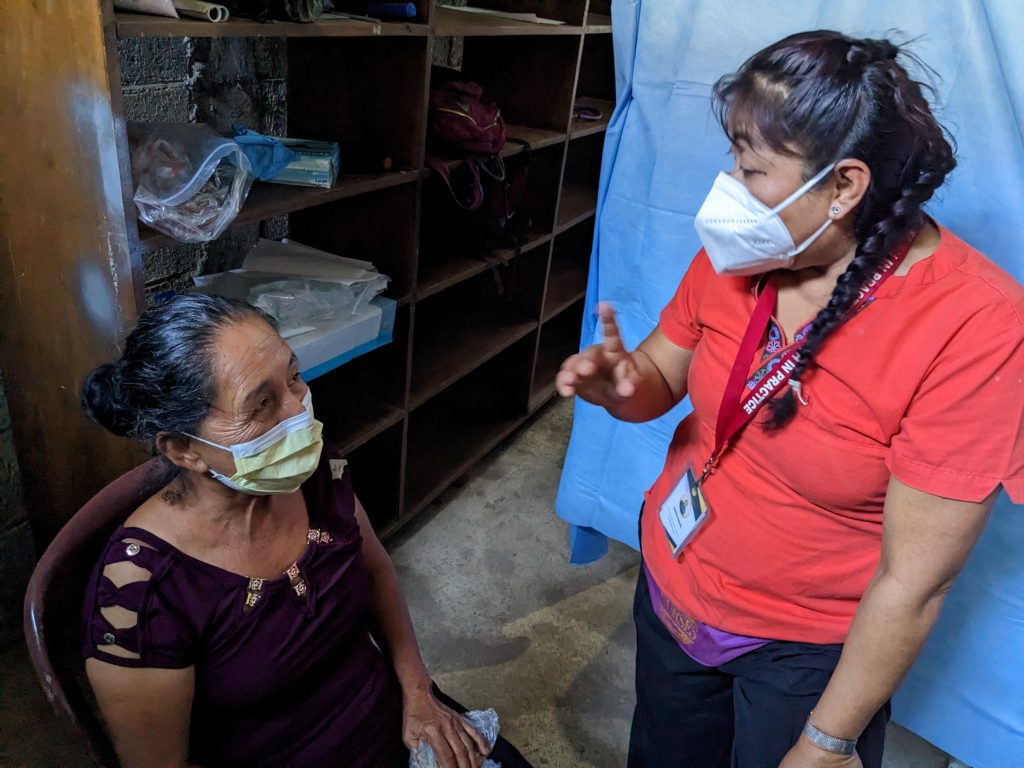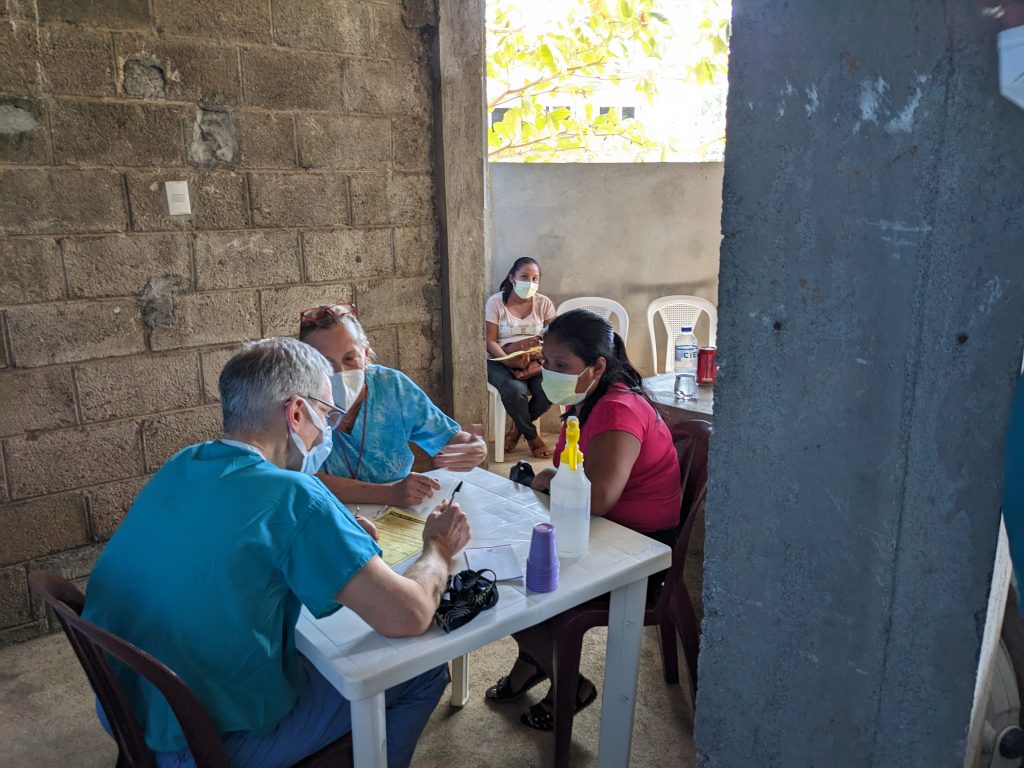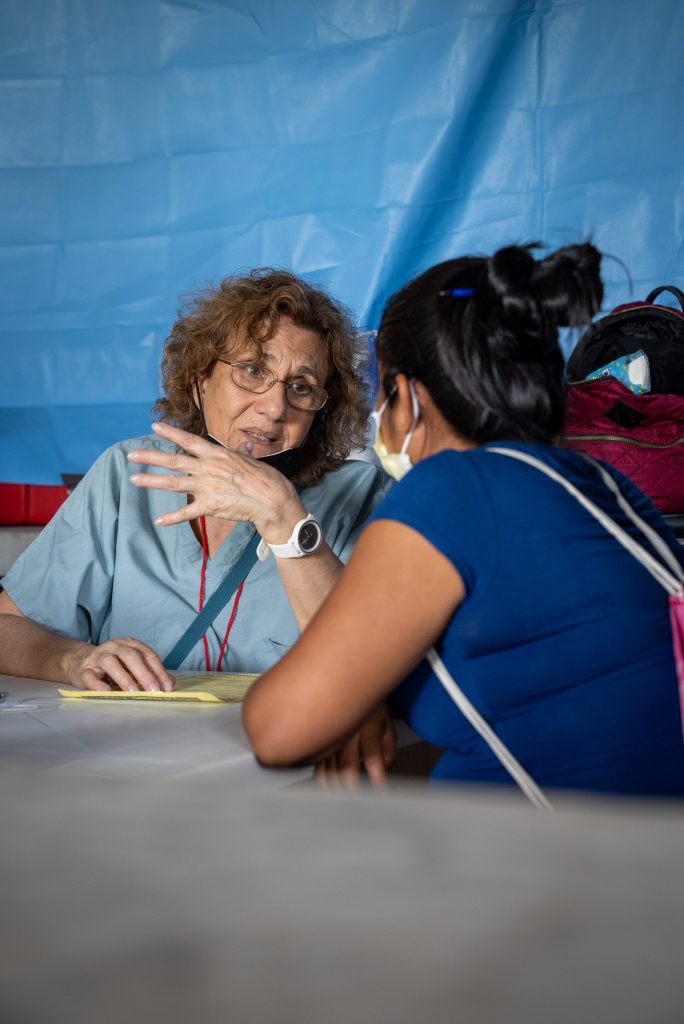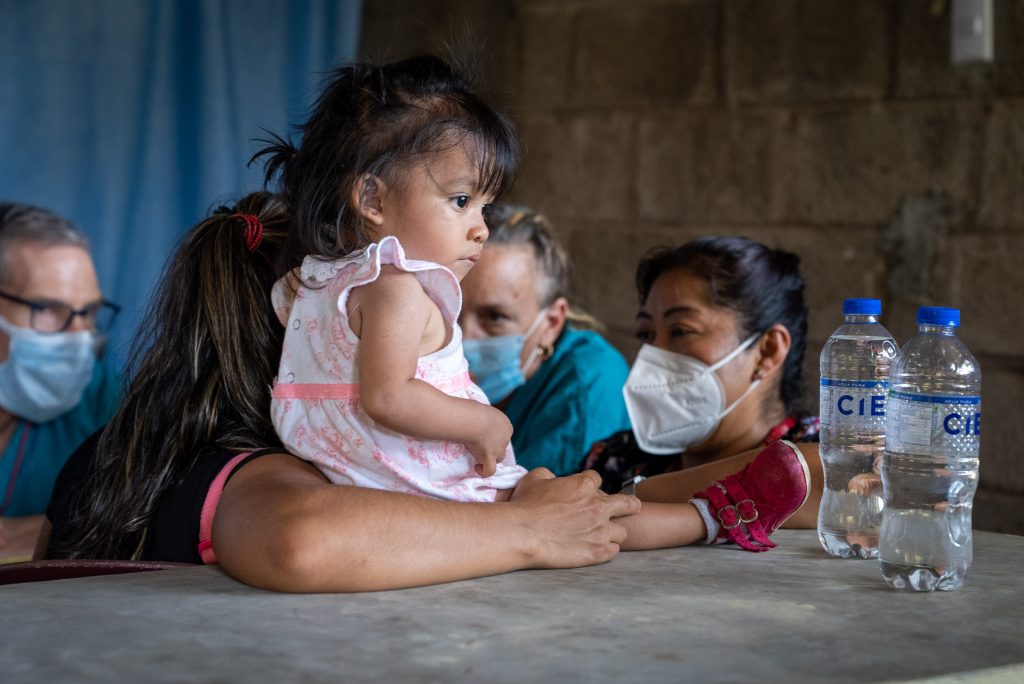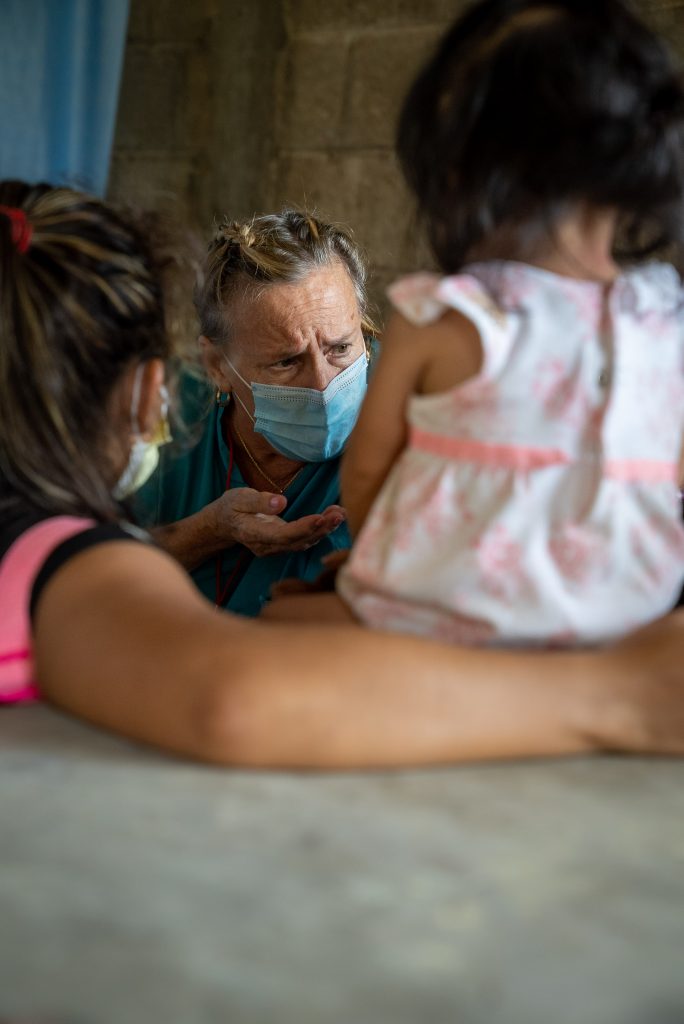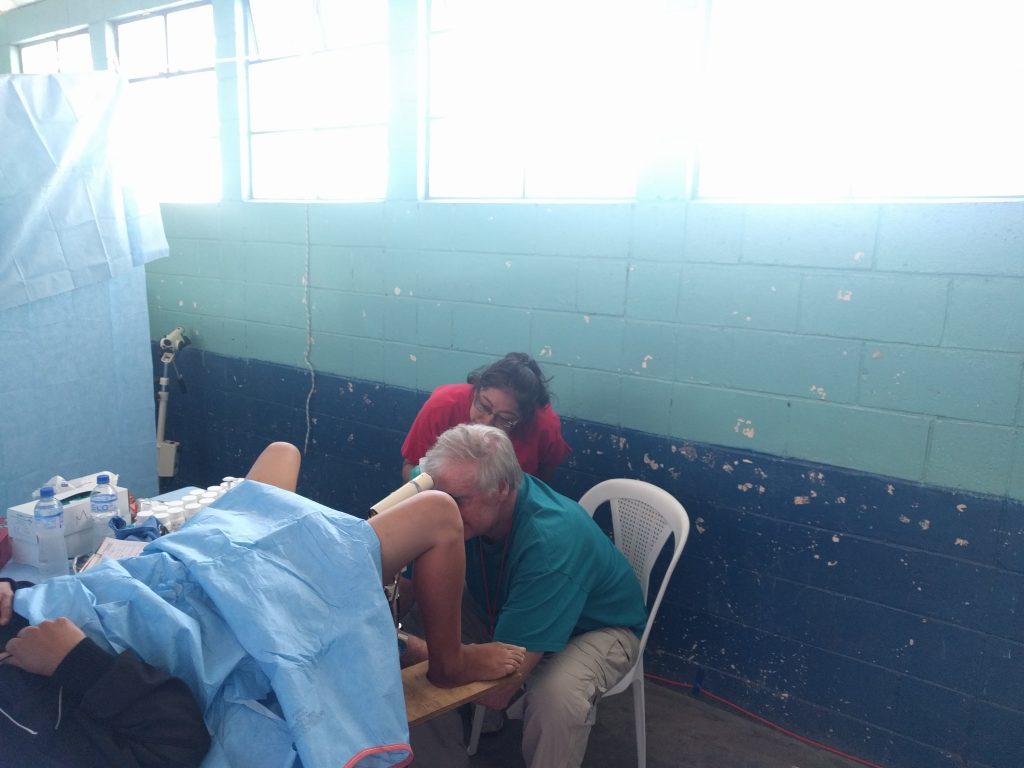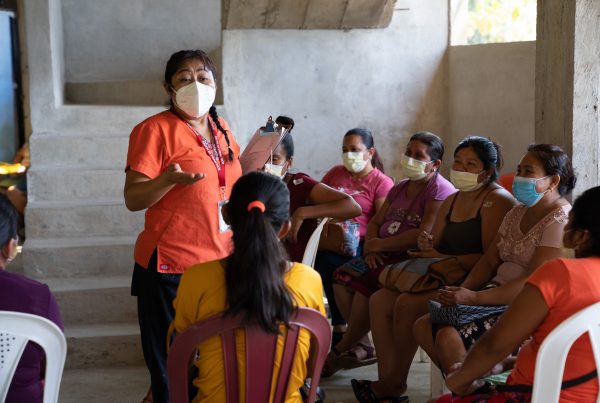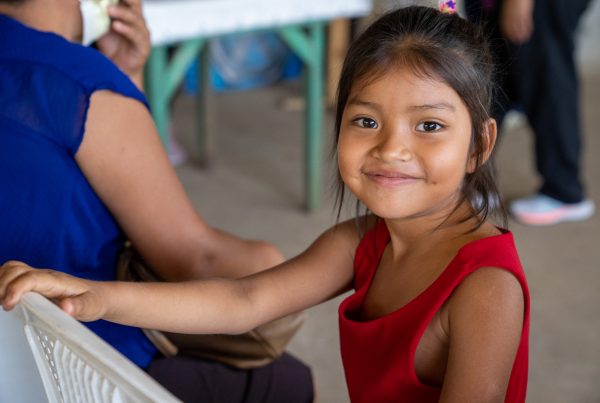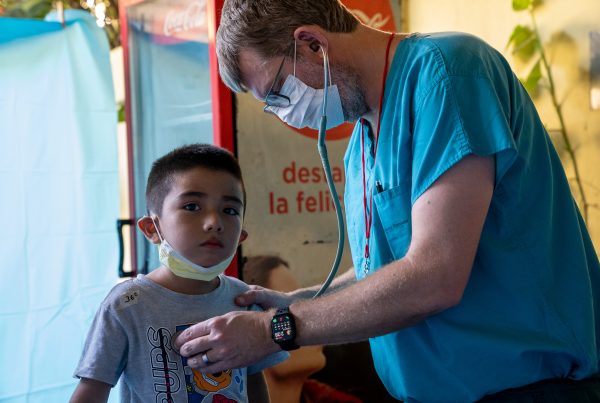In Women’s Health and Ob/Gynecology, we see a gamut of situations, individual and cultural, as women’s health can reveal a lot about a society. We often see older women who have suffered quietly for years from unpleasant conditions. Older women in rural and underserved areas of Guatemala typically have had somewhere between 8 and 12 children, all born at home, usually with a midwife. They are incredibly resilient and brave, but pelvic floor muscles are subject to fatigue, and many of these women suffer from prolapse. The uterus or even the bladder drops and bulges out from the vagina, resulting in difficult, embarrassing, even ostracizing conditions, the least of which is urine leaking at inappropriate moments. This despite the fact that many of these women are now alone and needing to support themselves, standing all day making tortillas in a food stand, walking in the streets or on rural roads selling clothes, food, water, or other items. These courageous women are referred to our partner hospitals for a surgery they could never afford on their own, and which will provide them with a much improved quality of life.
At the other end of the spectrum, amid so many other situations in women’s and families lives, we also see young women who come to us married but unable to have children. In a rural society where women’s opportunities and roles are limited, this is disaster. On top of this is the fact that in certain areas and among indigenous cultures birth control can be stigmatized. A young indigenous Mayan woman told us with tears in her eyes that her mother-in-law blamed her for not being able to become pregnant, accusing her use of contraception before, which was not even the case. We took quite a bit of time discussing anatomy, the cycle of fertility, and so on, and she was so relieved to know information she had had no access to before, some other reasons why this could be happening, and some possible solutions or options. She cried in relief, hugged us close and called for God to bless us and our work. Other infertile couples are surprised to learn that infertility is also on the male side, that they can get sperm counts, use natural cycles, and other information unavailable to them, information which can be lifechanging. We also meet in this area many young mothers on their own, with several children, whose husbands have traveled to “the north” to work and try to support their families. They try to be strong, and often have support of their own mothers, but their lives are hard, and they cry and their strain and fear are palpable. One young mother in this situation whom we met suffers from rheumatoid arthritis – without our referral to a rheumatologist through the Faith in Practice referral system, and the proper treatment, she would become a complete cripple like her father. Another mutual shedding of tears occurred with the visit of a young women on her own with small children and some typical female complaints but additionally a twitching of her eyes – in chatting with the interpreter about possible stresses, it was discovered that her husband had just phoned from the U.S. and told her he had a new partner and would no longer be coming back to her and their children. She was devastated. Finally, we also see so many women who come to us terrified that they need radical surgery which they could never afford – mastectomies, hysterectomies – the removal of breasts, uterus, ovaries, etc. due to “cysts” – after examination, and even ultrasound which we can do in the clinic thanks to a portable ultrasound machine, when they are told they absolutely do not need such a surgery, their gratitude and relief are immeasurable. And of course we are the beneficiaries of sincere hugs and prayers. This hope and relief when we can provide it is so gratifying. Of course, cases are detected which are much less hopeful – severe stage 4 breast cancer, serious cervical cancer detected with the FIP VIA and cryo team working together with the gynecologists. Even in such grave situations, FIP doctors and staff can provide support, proper referrals, and accompaniment as the patient and her family pass through a totally unknown and terrifying territory of hospitals and possibly treatments. Alone at home, in their villages, the course of these diseases at the stages they are sometimes discovered would be very short.
-Fran
To support this team and their commitment to our patient’s visit:


